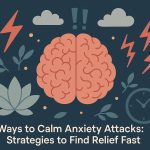In today’s consumer-driven world, with readily available personal loans online, it’s easy to accumulate things without considering their true value in our lives. From persuasive ads to social media influencers, we’re constantly bombarded with messages that tell us what we need to buy next. But is this desire for new things truly aligned with our personal values and needs? Reframing our relationship with possessions requires discernment between a soul want and an influenced want. Here’s how you can start making more mindful choices and find greater satisfaction with what you already have.
Understanding Soul Wants vs. Influenced Wants
The first step in reframing your relationship with possessions is understanding the difference between a soul want and an influenced want.
Soul Wants
- These are desires that align with your core values and personal happiness.
- They bring genuine joy and fulfillment, contributing positively to your life.
- Examples: A hobby that you’re passionate about, items that enhance your well-being or support your personal growth.
Influenced Wants
- These are desires driven by external influences, such as advertisements and social media.
- They often result in temporary satisfaction but don’t provide long-term happiness.
- Examples: The latest fashion trends, gadgets promoted by influencers, or items bought on impulse due to a sale or peer pressure.
Evaluating Your Possessions
Take a moment to assess the items you already own. Reflect on whether they truly serve a purpose in your life or if they are just adding to the clutter.
Conduct a Possession Audit
- Make a List: Write down the major items you own in different categories like clothing, electronics, and home decor.
- Ask Questions: For each item, ask yourself if it brings you joy, if it’s frequently used, and if it aligns with your values.
- Decide: Keep items that pass your evaluation and consider donating or selling those that don’t.
Reducing Impulse Buys
Impulse buying can lead to accumulating possessions that don’t add real value to your life. Here are some strategies to curb this habit.
Create a Waiting Period
- Implement a rule where you wait 24 hours before making a purchase. This gives you time to evaluate if the item is a soul want or an influenced want.
Set a Budget
- Allocate a specific amount for discretionary spending each month. This helps you prioritize your purchases and avoid overspending.
Mindful Purchasing Decisions
Making mindful purchasing decisions involves being intentional and thoughtful about what you buy.
Research Before Buying
- Read Reviews: Look for reviews and testimonials to understand the quality and utility of the item.
- Consider Alternatives: Sometimes, borrowing or renting can be a better option than buying, especially for items you’ll use infrequently.
Quality Over Quantity
- Focus on buying high-quality items that last longer and provide more value, even if they are more expensive upfront.
Benefits of Redefining Possessions
Reframing your relationship with possessions can have several positive impacts on your life.
Financial Savings
- By reducing impulse buys and focusing on what truly matters, you save money that can be better spent on experiences or invested for the future. For instance, using personal loans online wisely can help consolidate debt and manage finances more efficiently, leading to greater financial freedom.
Less Clutter, More Space
- Minimizing unnecessary possessions creates a cleaner and more organized living space, which can reduce stress and increase productivity.
Enhanced Well-Being
- Owning fewer, more meaningful items can lead to a greater sense of contentment and reduce the mental burden of maintaining and organizing too many possessions.
Creating a Value-Based Life
Living a value-based life means aligning your actions and possessions with your core beliefs and priorities.
Identify Your Values
- Spend time reflecting on what truly matters to you. Is it family, personal growth, creativity, or adventure? Let these values guide your purchasing decisions.
Practice Gratitude
- Regularly acknowledging and appreciating what you already have can shift your focus from wanting more to being content with enough.
Simplify Your Lifestyle
- Embrace minimalism by focusing on essential items that add value to your life and letting go of the rest.
Conclusion: Finding True Satisfaction
Reframing your relationship with possessions is about more than just decluttering—it’s about redefining what brings you true satisfaction. By understanding the difference between soul wants and influenced wants, making mindful purchasing decisions, and aligning your possessions with your values, you can create a life that feels richer and more fulfilling with fewer material things. Start today by evaluating your current possessions and making intentional choices about what you bring into your life, and enjoy the newfound freedom and contentment that comes with it.
Lynn Martelli is an editor at Readability. She received her MFA in Creative Writing from Antioch University and has worked as an editor for over 10 years. Lynn has edited a wide variety of books, including fiction, non-fiction, memoirs, and more. In her free time, Lynn enjoys reading, writing, and spending time with her family and friends.















